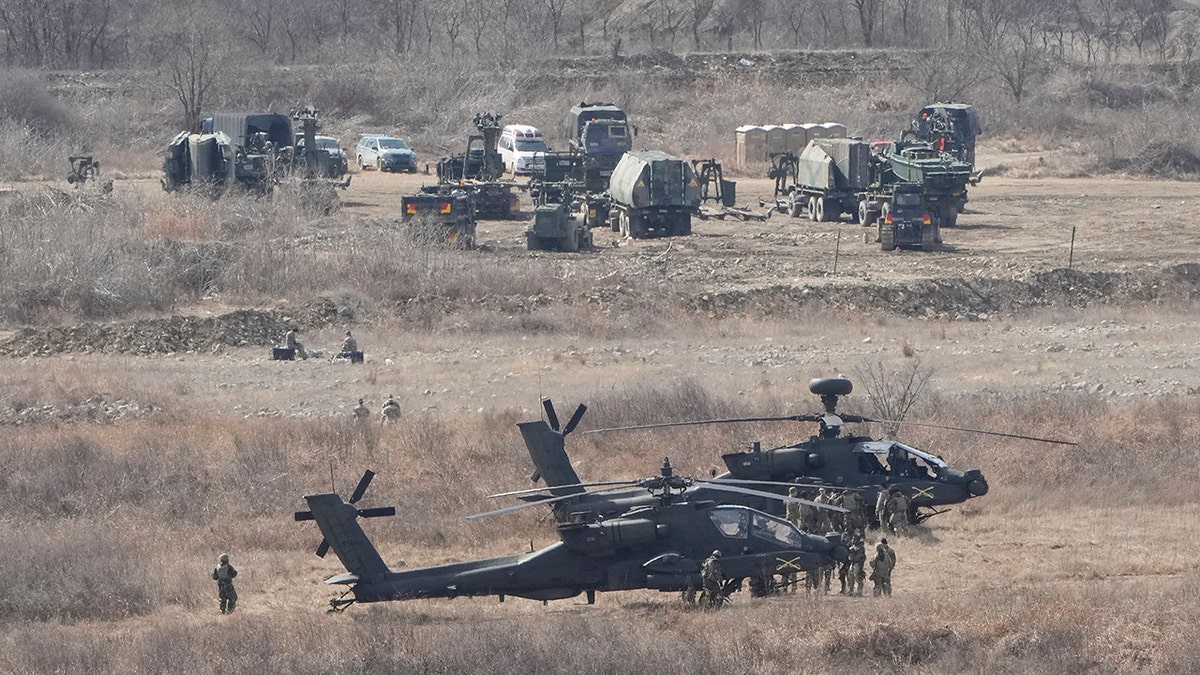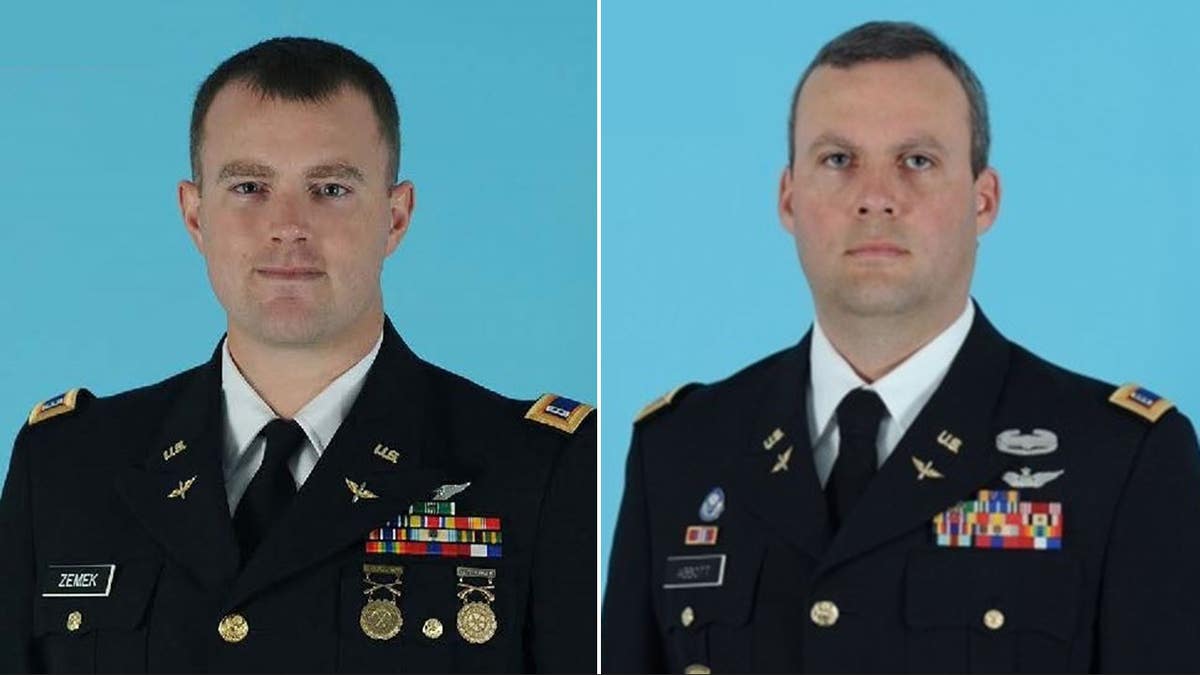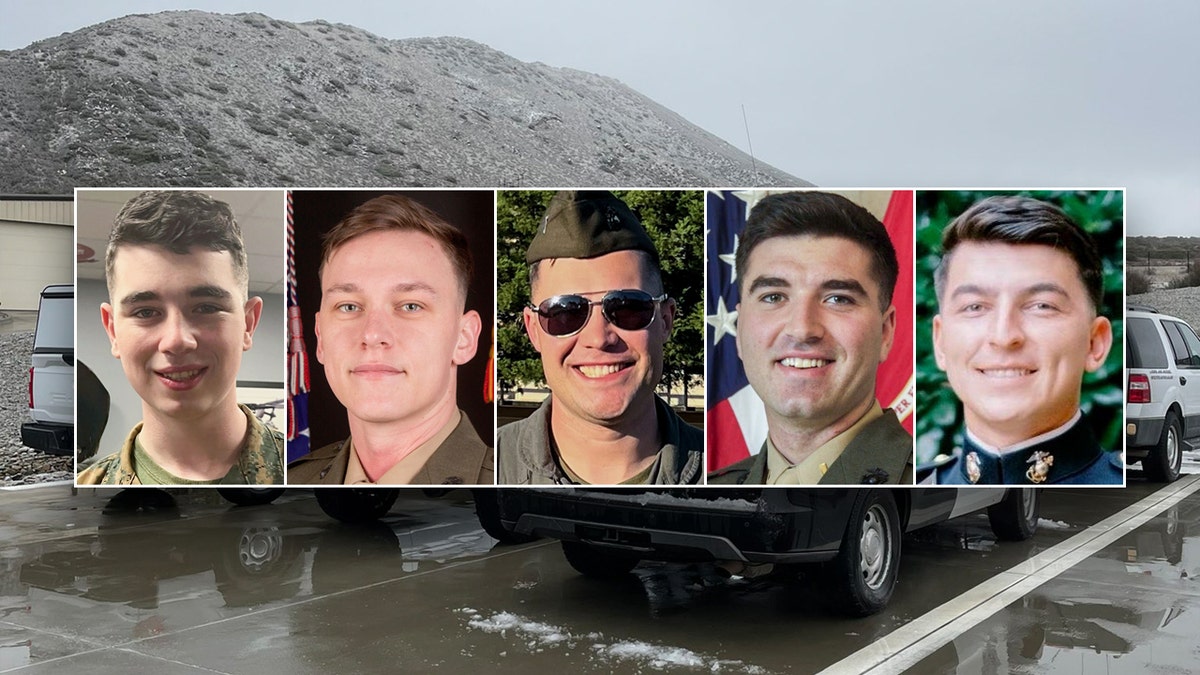Archie W. League was the first air-traffic controller — here’s how the daredevil pilot became the angel of air safety
Born in Missouri at the dawn of the Age of Flight, Archie League lives on "through the annals of aviation history."
Defense Secretary Lloyd Austin said he's confident in the U.S. military's leadership to address safety issues related to its aviation programs following a series of deadly helicopter crashes, the Pentagon said Tuesday.
Remarks by the Department of Defense came on the same day the National Guard issued an aviation safety stand down of all Army National Guard helicopter units following two separate helicopter crashes in Mississippi and Utah that killed two soldiers and injured two others, respectively.
"The secretary is confident in the service secretaries and chiefs and their leadership in terms of addressing safety concerns," Pentagon press secretary Major General Pat Ryder said Tuesday.
Units across the National Guard’s 54 states and territories will "review safety policies and procedures" following the deadly Feb. 23 crash of a Mississippi National Guard AH-64D Apache helicopter, and the Feb. 12 crash of a Utah National Guard Apache that injured both soldiers on board.

The U.S. military is contending with a series of deadly Army Apache helicopter crashes that have raised concerns about the safety of its aviation programs. (AP Photo / Ahn Young-joon / File)
"We are a combat force with helicopters training or on mission worldwide every day," said Lt. Gen. Jon A. Jensen, director of the Army National Guard. "Safety is always at the top of our minds. We will stand down to ensure all of our crews are prepared as well as possible for whatever they’re asked to do."
Since 2012, there were at least 279 deaths involved in U.S. military non-combat aviation crashes, according to data reviewed by Fox News Digital. In total, there were 179 aviation incidents involving the Army, Navy, Air Force, Marines and the Army and Air National Guard in the same time frame.
The Air Force reported 56 incidents, followed by the Navy with 40, Marines with 38, the Army with 23, and both National Guard branches with 23.
The Mississippi National Guard identified the two service members killed last week as Chief Warrant Officer 4 Bryan Andrew Zemek, 36, and Chief Warrant Officer 4 Derek Joshua Abbott, 42. The pair died near Booneville, Mississippi, when their Apache went down in a rural wooded area during a routine training flight, officials said.
None of the pilots in the Utah crash died.
MARINE KILLED IN CAMP PENDLETON TRAINING EXERCISE IDENTIFIED

Chief Warrant Officer 4 Bryan Andrew Zemek, 36, and Chief Warrant Officer 4 Derek Joshua Abbott, 42, were killed in a helicopter training crash last week. (Mississippi National Guard)
Bradi Abbott, widow of Derek Joshua Abbott, said her husband joined the National Guard in 2002, and that "second to his children, he loved his Apache." Since the crash that took her husband, Abbott has received daily updates from investigators, she told Fox News Digital.
"There's no doubt about it," she said when asked if she believes the Pentagon can address the safety concerns plaguing the military's aviation programs. "I do, 100%."
Of her husband, Abbott said he, "believed in the military and the government more than anybody I know."
That Mississippi crash happened after five Marines died when their CH-53E Super Stallion helicopter crashed during a storm in the mountains outside San Diego on Feb. 6, while on a routine training flight. The crew departed Creech Air Force Base in Nevada en route to Marine Corps Air Station Miramar near San Diego when it went down.
FREE COLLEGE PROMISES INTENSIFY MILITARY RECRUITMENT CRISIS
Bradford Moulton, the uncle of Capt. Benjamin Moulton, who died in the crash, told "Fox & Friends" that the aircraft should never have been allowed to take off during a rare winter storm.
"That's something that I personally cannot understand. Having worked with the military for most of my career, I know the military does hazardous missions all the time, and they train all the time, but this was a highly volatile storm," he said Monday. "They had hurricane-force winds. These helicopters, they were flying, they don't have defrosters on the windshields. If their rotors ice up, they're going down. They were flying at an altitude of 5,400 feet, which is right where the snow and the rain mixes."
Most recently, two Army pilots escaped a training exercise with minor injuries when their UH-72 Lakota helicopter crashed Friday in Alabama.
Jensen didn't specify how long the National Guard stand down will last. In 2023, the Army grounded all its helicopters after two Black Hawk helicopters in Kentucky crashed, killing nine people, and a midair collision of two Apaches in Alaska.
Less than a month after that stand down, two Army Apache pilots were injured in a crash during a training flight in Washington state.

The five Marines who were killed in a CH-53E helicopter crash in Pine Valley, Calif., on Feb. 6, 2024, were identified: Lance Cpl. Donovan Davis, 21, left, of Olathe, Kan., Sgt. Alec Langen, 23, of Chandler, Ariz., Capt. Benjamin Moulton, 27, of Emmett, Idaho, Capt. Jack Casey, 26, of Dover, N.H., and Capt. Miguel Nava, 28, of Traverse City, Mich. (U.S. Marine Corps / CalFIRE)
In September 2023, the Marines Corps also ordered an aviation safety stand down after stealth F-35 jet "mishap" in South Carolina that prompted the pilot to eject the aircraft.
Despite the number of aviation incidents, the military will continue to prioritize safety, Ryder said.
"Safety is always something that we're always going to be concerned about and take seriously, he said. "In every service, you will see senior leadership making safety a priority."







